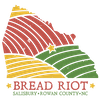How to Be a Conscious Eater by Sophie Egan
For July, the group discussed this easy-to-read, practical guide to making everyday food choices.
Workman Publishing Co., Inc., 2020, www.workman.com.
The Sustainability Book Club met on July 6 to discuss How to Be a Conscious Eater: Making Food Choices That Are Good for You, Others, and the Planet by Sophie Egan. This book is a practical guide to navigating the world of food and presents straightforward ways to make thoughtful choices about what to eat.
Egan organizes the book into four parts: stuff that comes from the ground, stuff that comes from animals, stuff that comes from factories, and stuff that’s made in restaurant kitchens. She covers 60 food-related topics, each time asking three questions: Is it good for me? Is it good for others? Is it good for the planet? By delving into topics such as almonds, soy milk, farmed seafood, grass-fed beef and more, she provides answers to many top-of-mind questions for conscious eaters. Each section ends with a page of the top five takeaways as a concise recap. Whimsical illustrations by Iris Gottlieb throughout the book make the information more memorable.
Although many people in the United States lack access to real, nourishing foods, which Egan acknowledges, for those who have the privilege of abundant choices, this book is a helpful resource. During the book club meeting, members discussed the information in the book that was new to them as well as details covered in previous book club reads. Members talked about the pro/cons of red meat, the amount of water it takes to grow different nuts, local sources for procuring seafood, and the various certifications and labels in the market. The group also discussed how you have to ask “As opposed to what?” when making food choices. Egan gives this example in the book: It isn’t just “Are almonds good or bad?” It’s “Is a handful of almonds better than a stick of string cheese?”
Here are a few surprising points from the book:
Eating grilled meat regularly may increase your risk of cancer due to carcinogens that develop during the grilling process. Egan advises grilling produce instead of meat, marinating meat before grilling, and avoiding char.
Rice, both conventional and organic, contains concerning levels of arsenic, which comes from the ground and is absorbed by the rice plant. To minimize arsenic intake, Egan advises eating a variety of whole grains instead of just rice, and when cooking rice, to rinse it well and use a 6:1 ratio of water to rice, draining excess water.
Feeding farm-raised fish can deplete wild fish stocks. One stat: It can take more than 15 pounds of wild fish to produce 1 pound of farmed tuna. Egan advises checking a resource like Seafood Watch to find sustainable options.
U.S. farmers would need to grow 70 percent more vegetables and 50 percent more fruit to supply the amount of produce experts say we should be eating. Egan advises voting with your grocery basket by purchasing more fruits and vegetables to drive consumer demand.
If you struggle with food decisions and wonder what all those labels mean, pick up a copy of How to Be a Conscious Eater to learn more or to use as a quick reference.
The Sustainability Book Club
Join a group of avid readers who meet monthly to engage in lively discussions focused on books about sustainability. The club meets at 6:30 p.m. on the first Thursday of every month on Zoom. Contact us to join!
Aug. 3: The Carbon Almanac edited by Seth Godin
Sept. 7: The Food Explorer by David Stone
Oct. 5: The Secret Life of Groceries by Benjamin Lorr
Nov. 2: Food Stars by Ellen Mahoney

